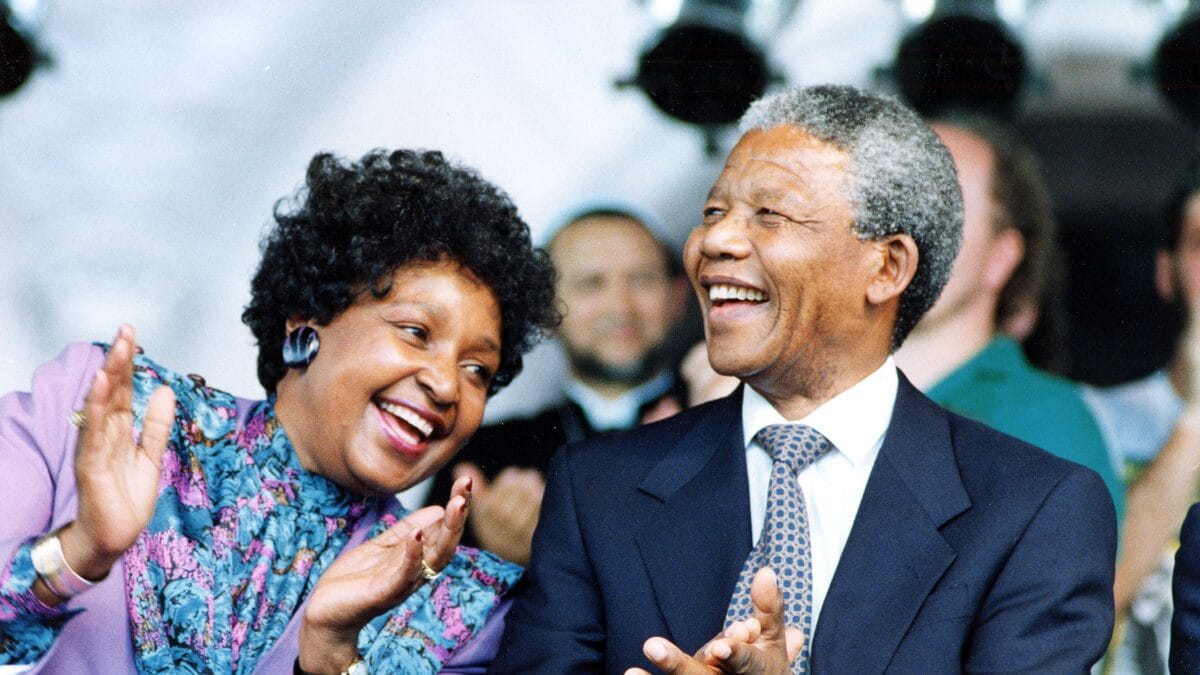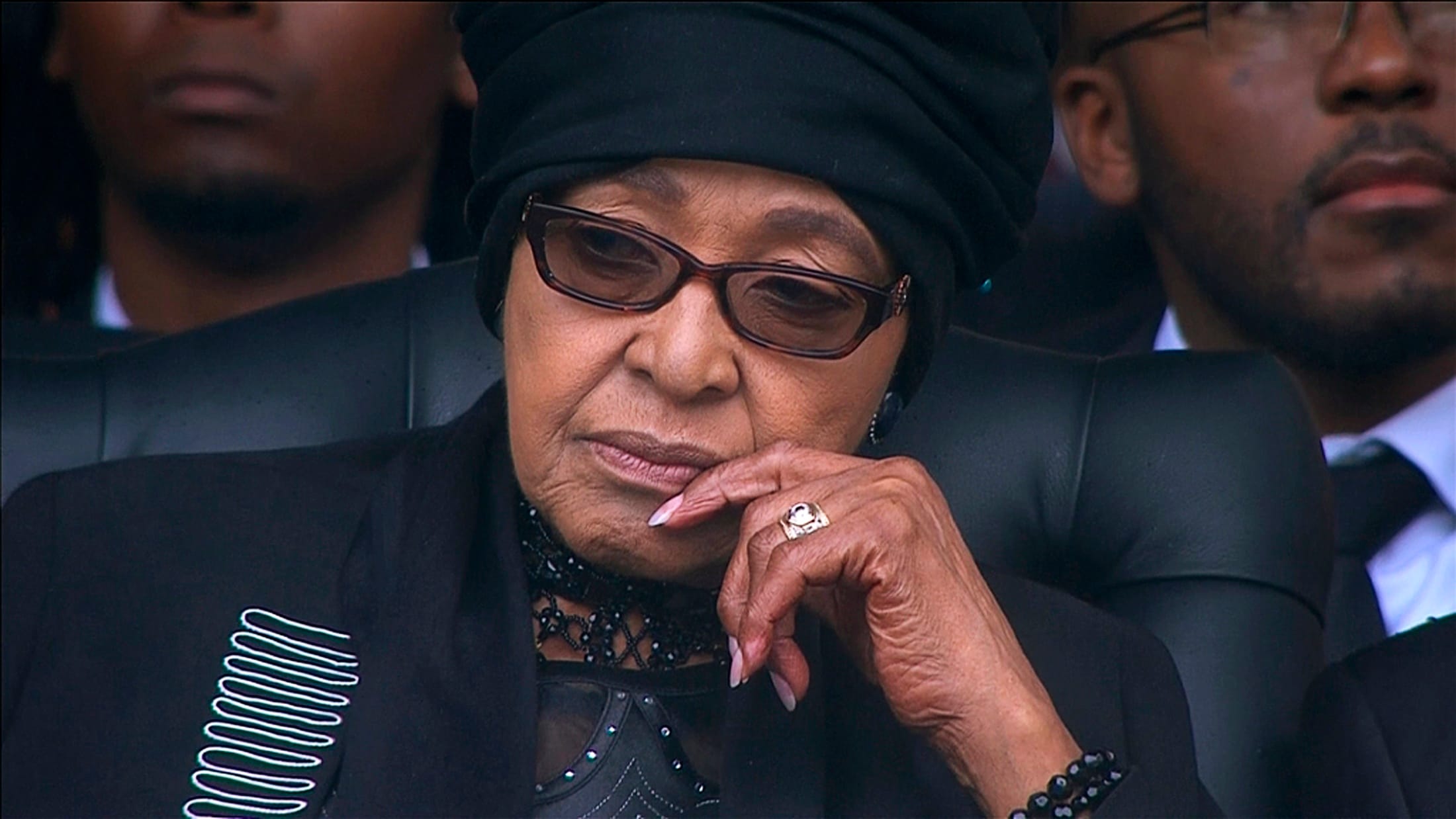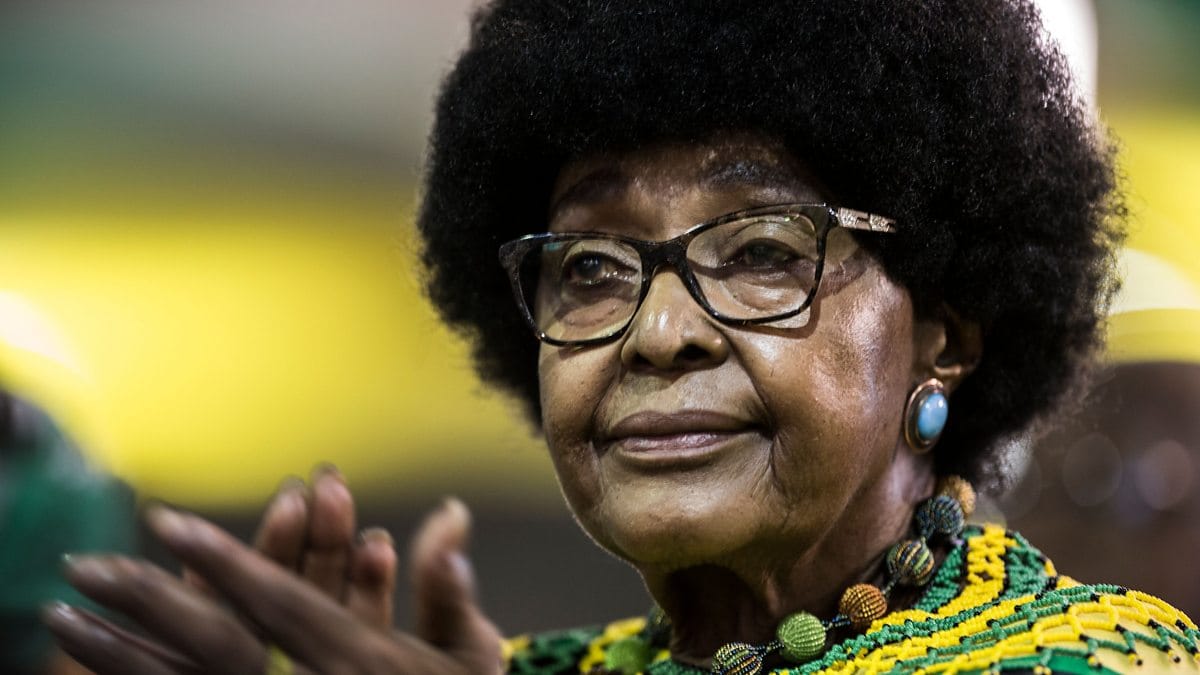Nomzamo Winifred Zanyiwe Madikizela was born on September 26, 1936, in the village of Mbongweni, Bizana, in the Eastern Cape province of South Africa. She was the daughter of Columbus and Gertrude Madikizela, both teachers. Her upbringing was shaped by the values of education, discipline, and service, and these traits followed her into adulthood.
Winnie earned a degree in social work from the Jan Hofmeyr School of Social Work in Johannesburg and later studied international relations at the University of Witwatersrand. Her move to Johannesburg marked her exposure to the brutal realities of apartheid urban life and the early stages of political consciousness.
Marriage to Nelson Mandela and Entry into Political Life
In 1958, she married Nelson Mandela, already a leading figure in the African National Congress (ANC). Their marriage would become one of the most iconic yet tumultuous relationships in South Africa’s history. Within a few years, Nelson was imprisoned, beginning a 27-year sentence in 1962.
Winnie Mandela was left to raise their children and carry on the political torch amid growing apartheid repression. This personal burden propelled her into a full-fledged political role. She would become not only the symbolic figure of resistance but also an active and forceful participant in the liberation struggle.

Political Activism and Repression
After Nelson’s imprisonment, Winnie endured continuous police harassment. She was detained, jailed, and banished several times. In 1969, she was arrested under the Terrorism Act and placed in solitary confinement for over a year—the longest period any woman had endured at the time.
In 1977, she was banished to Brandfort, a remote town in the Orange Free State, where she was under virtual house arrest. Despite the ban, she continued her political activities underground, supporting ANC cadres, building community support networks, and maintaining global attention on the anti-apartheid cause.
During the 1980s, Winnie’s political presence became more visible and militant. She defied banning orders, gave fiery speeches, and organized youth in the volatile townships. She formed the Mandela United Football Club, ostensibly a youth group, but one that later became controversial due to accusations of violence and intimidation.
Leadership Role in the ANC and Mass Mobilization
Winnie Mandela played a prominent role in mobilizing resistance through mass movements, particularly among Black South African women and youth. She became a leading voice in the United Democratic Front (UDF), a coalition of anti-apartheid organizations that resisted apartheid’s structures in the 1980s.
Despite intense state repression, she often led from the front, addressing rallies and funerals of anti-apartheid activists, where she condemned the regime and called for defiance. She also cultivated international alliances, speaking abroad and helping secure global solidarity for the liberation movement.
Her famous declaration — “With our boxes of matches and our necklaces we shall liberate this country” — became both a slogan of empowerment and a source of controversy for its reference to vigilante justice against suspected informers.

Controversy and Criminal Allegations
Winnie’s political career was not without serious challenges. Allegations against the Mandela United Football Club, including abductions, torture, and even murder, became a major stain on her legacy. In 1991, she was convicted of kidnapping and accessory to assault, receiving a suspended sentence and fine.
Despite the legal troubles, Winnie remained a force in South African politics. She maintained substantial grassroots support, particularly in the townships where she was seen as a fearless and uncompromising leader.
Post-Apartheid Political Career
Following the unbanning of the ANC and Nelson Mandela’s release in 1990, Winnie resumed official roles in the ANC. She served as the Deputy Minister of Arts, Culture, Science and Technology in 1994 in South Africa’s first democratic government. However, she was dismissed in 1995 due to insubordination and disagreements with the ANC leadership.
Nevertheless, she remained active in ANC politics and was elected to Parliament multiple times, serving as an MP until shortly before her death. Her strong base in the ANC Women’s League and among poor, urban voters allowed her to retain considerable influence within the party.
Winnie was also a member of the ANC National Executive Committee (NEC), where she played an important role in shaping policy and mobilizing support in inner-party disputes. Her vocal criticism of the ANC’s drift from its revolutionary roots earned her both admiration and rebuke.

Legacy and Final Years
Winnie Madikizela-Mandela died on April 2, 2018, at the age of 81. Her death prompted an outpouring of tributes and debates, reflecting her complex legacy. She was hailed as the “Mother of the Nation” by many, especially those in the townships who saw her as their fiercest protector and voice.
Though often overshadowed by controversy, her political career was defined by resilience, defiance, and an unwavering commitment to Black liberation. She navigated and endured the harshest realities of apartheid repression and emerged as a formidable political figure in her own right—not merely as Nelson Mandela’s wife, but as a revolutionary leader whose life mirrored the struggle of a nation.



